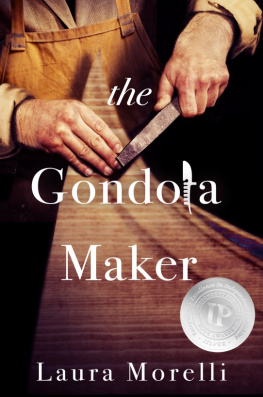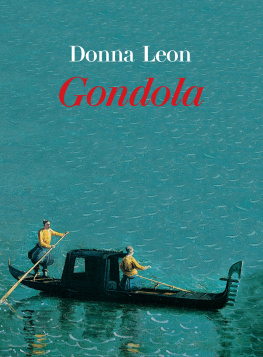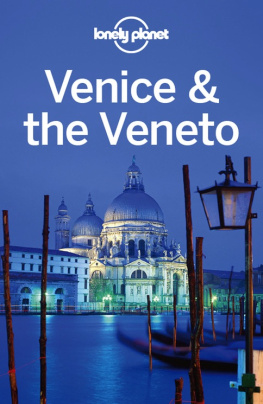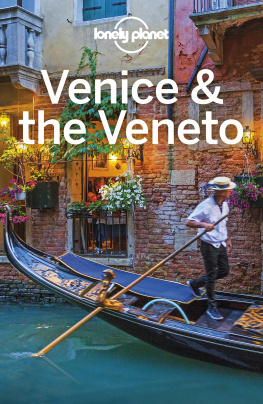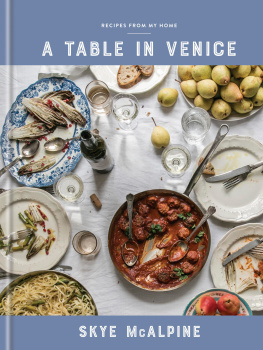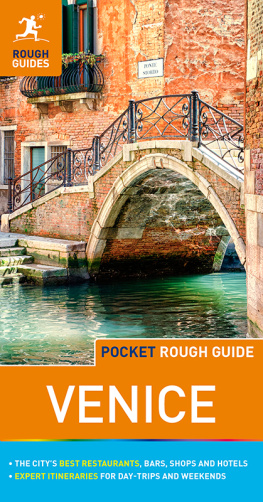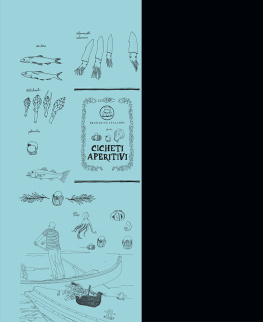The Gondola Maker
Laura Morelli
Copyright 2014 Laura Morelli
SMASHWORDS EDITION
Published 2014 by:
Laura Morelli on Smashwords
The Gondola Maker is a work of historical fiction. Apart from theactual events and locales that figure in the narrative, all names,characters, places, and incidents are products of the authorsimagination or are used fictitiously. Any resemblance to currentevents or locales, or to living persons, is entirely coincidental.All rights reserved. No part of this book may be reproduced withoutwritten permission, except for brief quotations to books andcritical reviews.
This eBook is licensed for yourpersonal enjoyment only. This eBook may not be re-sold or givenaway to other people. If you would like to share this book withanother person, please purchase an additional copy for eachrecipient. If youre reading this book and did not purchase it, orit was not purchased for your use only, then please returnto Smashwords.com and purchase yourown copy. Thank you for respecting the hard work of thisauthor.
Library of Congress Control Number 2013922567
Paperback ISBN-13: 978-0989367103
eBook ISBN-13: 978-0989367110
Morelli, Laura.
The Gondola Maker / Laura Morelli
www.lauramorelli.com
Dedicated to those
whose hearts propel their hands
Venice, 1581

Chapter 1
I chew my lower lip while I wait to see my fathersgondola catch fire.
Beneath the boat, a pile of firewood is stacked sohigh that I find myself in the odd position of looking up at theunderside of its black hull. A meticulous servant or day laborerhas split the logs and arranged them into neat stacks, then presseddried brush into the spaces between the wood, with the intention tostart an impressive blaze. The gondola has been lashed to thelargest logs of the pyre, yet it remains skewed at an angle. Frommy vantage point, I cannot help but admire the crafts flowinglines, its elegant prow reaching toward the sky as if to defy thisinjustice.
My father had nothing to do with the crime committedin this boat, of course. I feel certain that none of the onlookershas any idea that my father, our Republics most renowned gondolamaker, and I, a young man barely worthy of note, crafted thisgondola with our own hands. Surely no one has noticed our catanella , the maple-leaf emblem we carveinto the prow of each gondola that emerges from the Vianelloworkshop.
I stand in a crowd of bakers, clockmakers, tailors,housewives, fishermen, and merchants, all hungry for a fieryspectacle. I cast my eyes to what must be hundreds of individualsgathered around me. No, not one of them is thinking of my proudfather or myself, even though I helped my father craft this fineboat just two years ago in our family boatyard. The only man onpeoples minds is the one who threw the rock that started thishumiliating affair.
I hear murmuring behind me, then the crowd parts inunison. I scramble to the fringes just in time to feel the swish ofa silk robe as a man strides purposefully by me, ignoring mypresence as if I were a mere bird fluttering out of his path.
The Councillor, I hear someonewhisper beside me. My heart begins to pound.
Beneath the clasp that holds his garment closed, themans chest protrudes. His brow pulsates at the temples, and flecksof gray dust his otherwise slick head of black hair that showsbeneath his close-fitting cap. A perfectly straight nose and aneven, thin-lipped mouth define a regal profile. Silently, the mancircles the doomed boat, turning his piercing dark eyes into thedepths of the pyre as if he can see through to the other side. Helooks up at the great black craft, and everyone in the circlefollows his gaze, shifting from foot to foot in anticipation.
The man in the silk robes completes hiscircumnavigation of the pyre. Finally, he addresses the crowd,which has grown silent over the course of the mans dramaticentrance. A shadow darkens his face, and his mouth forms a scowl asthe deep cadence of his voice reverberates through the air:
The Lords of our Most ExcellentCouncil have ruled in the case brought against Bonito Banfi,boatman of Cannaregio, so that justice may be served in a mannerproper and fitting to any individual who would seek to disrupt thepeace and stable government of our Most Serene Republic. Accountingfor the harmful scourge that irreverent boatmen bring to the peaceof Our Most Excellent State, Bonito Banfi has been sentenced to tenyears of service on the convict galleys.
By now all of us have heard the story of BonitoBanfi, the condemned gondolier whose boatthe same one thatlaunched from our boatyard ramp two years agowill burn on thepyre.
The tale has spread across the Venetian Republic fornearly ten days. As with so many crimes in our city, this one beganwith a family quarrel so old that no one remembers how it hadstarted. Banfi had been making his rounds of the ferry stationswhen he spied his archrival, another gondolier called PaoloSqueran. Squeran owed him money, Banfi said, to settle a gamblingdebt. The two men commenced a shouting match, their foul wordsechoing across the canal waters from one gondola to the other. Theverbal insults escalated and began to draw crowds of onlookers tothe edge of the quay.
Banfi didnt know it, but the passenger ridingbehind the curtains of Squerans gondola happened to be the Frenchambassador, returning to the embassy after a meeting at the GreatCouncil. Banfi lifted a large rock that he had been carrying in hisgondola just in case he happened to cross paths with Squeran.Instead of hitting Banfis rival, however, the rock rang againstthe ambassadors passenger compartment. The curtains parted and theenraged ambassador emerged from his peaceful retreat to hurlinsults of his own, in French, at the offending gondolier. Theambassador then ordered Squeran to ferry him directly to theCouncil of Ten, where he lodged a formal complaint with the body ofjustice-makers.
Banfis sentence, so it has been recounted, is toserve for ten years on the convict galleys. Banfis ankles wereshackled, and he has been escorted to the state shipyard, where hewill be chained to a crew of prisoners forced to row one of OurSerene Republics sailing ships, part of a fleet that embarks eachday for Crete, Corfu, Acre, and other port cities of our coloniesin the eastern Mediterranean. To be sure, the convict galleys meana sentence for Banfi that is worse than prison, perhaps even thandeath. A host of ills awaits him, seasickness and diarrhea the veryleast of his worries. All of us have heard the stories of dysenterythat make you vomit blood, scurvy that causes pus-filled wounds toemerge across your thighs, and gangrene that turns your feet black.This is all on top of falling victim to whatever tribulations onesfellow prisoners might inflict under cover of darkness.
A modest state pittance will be provided to feed andclothe Banfis wife and four small children, who watched tearfullyas six of the state night-guards, the signori dinotte , seized the gondola. Within hours, the boat wassentenced to this fiery doom. The intent, of course, is to set anexample for the notoriously foul-mouthed gondoliers whom everyonein the crowd already considers the scourge of the city.
Before the pyre, I watch the man in the silk robes,himself surely one of The Ten who received the complaint lodged bythe French ambassador. I see his lower lip twitch, an almostimperceptible, involuntary spasm that seems at odds with thisotherwise well-composed official. It vanishes as quickly as itappears. He continues:
Today, it is both my obligationand my privilege to oversee the public disgrace of this boat, as anexample and a symbol for any boatman who would seek to act in anymanner against Our Most Excellent Government. The greatest weightshall be placed against those who would seek to disrupt the peaceof Our Most Serene Republic. So decreed on thisfour-hundred-fifty-first day of the reign of our Most Illustriousand Benevolent Prince Doge Nicol da Ponte.
Next page
